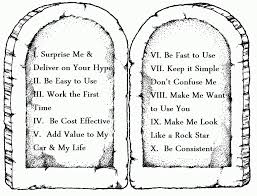Ephesians 3:1-3 - For this reason I, Paul, a prisoner for Christ Jesus on behalf of you Gentiles – assuming that you have heard of the stewardship of God's grace that was given to me for you, how the mystery was made known to me by revelation, as I have written briefly.

First off, you need to go get yourself some candy or a packet of beef jerky (if you are on keto), or some kind of reward, because there are quiz questions in this session!
In chapter 3, Paul gives an account of himself to the Ephesians. He stresses the fact that he was appointed by God to be the apostle to the Gentiles and that he was called to reveal the ancient mystery of the gospel. Why do you think he did this? Why did Paul feel this was necessary?
[Hum your favorite game show music now. Possibly the theme to 'Jeopardy'].
Do you have your answer? There is a clue in verse one. Paul was in prison. For the purposes of our study, the reason for his imprisonment is most significant. Paul is not in prison for committing a crime or for being a debtor or a war captive; he is in prison for sharing the gospel with Gentiles. Specifically, Paul asserted that the privileges of justification and salvation through Christ belonged to the Gentiles as well as the Jews, even though the Gentiles were uncircumcised in the flesh and they did not adhere to the law.
Many Jews were consumed with anger over this issue. As we discussed in prior lessons, they were unwilling to accept the Gentiles into the family of God. Beginning in Acts 21, we find an account of the Jews attempting to lynch Paul. When they were prevented from beating him to death, they changed tactics and brought formal charges against him. Eventually, this led to Paul being imprisoned in Rome. He wrote the letter to the Ephesians from the Roman prison.
 Paul's adversaries (mainly the devout Jews) claimed that his imprisonment was proof that he was essentially a liar and a blasphemer. After all, if God really wanted the Gentiles to be saved, why weren't things going well for Paul? On the other hand, Paul's supporters assert that his imprisonment was a confirmation of the truth. If the other apostles suffered persecution and imprisonment for sharing the gospel, why not Paul?
Paul's adversaries (mainly the devout Jews) claimed that his imprisonment was proof that he was essentially a liar and a blasphemer. After all, if God really wanted the Gentiles to be saved, why weren't things going well for Paul? On the other hand, Paul's supporters assert that his imprisonment was a confirmation of the truth. If the other apostles suffered persecution and imprisonment for sharing the gospel, why not Paul?
Therefore, Paul gives an account of himself to the Ephesians so that they can know with certainty that God called him to be the apostle to the Gentiles. He wants to make sure that they fully understand that God has welcomed them into his family not as second class citizens, but as full sons and daughters. Paul will also make it clear that inclusion of the Gentiles was God's intention from the very beginning.
Did you correctly answer the question of why Paul gave an account of himself to the Ephesians? If so, enjoy your reward as you continue reading. If not, don't worry - another quiz question is coming soon!
Who do you think was driving this separation of the Jews and Gentiles? The obvious answer is Satan [that was not the quiz question. Put the candy down and back away slowly]. Only Satan could be fueling the hatred that we see tearing these two groups apart.
Why was Satan trying so fiercely to drive a wedge between Jews and Gentiles?
Do you have an answer? Compare it to what Jesus says in Mark 3:24-25 - If a kingdom be divided against itself, that kingdom cannot stand and if a house be divided against itself, that house cannot stand.
If the church could not unite as one back in the book of Acts, there would have been two churches – a Jewish church and a Gentile church.
That means that Jesus, who is head of the church, would have two bodies! Have you ever seen two bodies that shared the same head? Of course not! A person like that would soon die. Likewise, the church would die if it did not unite as one. That is why Satan fought so hard to divide the two groups.
What are the implications of that today? I believe that Satan still tries to divide the church by pitting different denominations against one another. Personally, I believe he is at least partially successful in getting us to fight each other instead of uniting to fight against him! Let's try to remember that we may differ from others in minor beliefs, but as long as we all believe in salvation through the blood of Christ, we are brothers and sisters!
Sadly, we even have disputes and divisions within individual churches! Satan has not changed – he still seeks to divide and conquer, but if we allow a bond of love to unite us, we can overlook our differences and serve Christ in harmony.
Ephesians 3:4-6 - When you read this, you can perceive my insight into the mystery of Christ, which was not made known to the sons of men in other generations as it has now been revealed to his holy apostles and prophets by the Spirit. This mystery is that the Gentiles are fellow heirs, members of the same body, and partakers of the promise in Christ Jesus through the gospel.

Paul mentions the 'mystery' of Christ several times in this chapter.
The mystery is that there is no difference between Jew and Gentile in the kingdom of heaven. Both are heirs of Christ. Both are included in the body of Christ. Both are entitled to the same spiritual benefits including salvation and the baptism of the Holy Spirit. The really mysterious part (to the Jews at least) was that the Gentiles could be included without the works of the law. The Gentiles did not need to be circumcised or keep the Sabbath day or observe any of the Jewish festivals, or dietary laws, yet they still were equal in the kingdom! Admittedly, this is not much of a mystery to us, but during the early days of the church, this was a shocking revelation.
Paul says that the mystery was "not made known" or in other words, it was hidden from earlier generations. This seems odd to us, because clearly God always intended to include the Gentiles in his plan of salvation.
Psalms 22:27 – All the ends of the earth shall remember and turn to the Lord, and all the families of the nations shall worship before you.
Daniel 7:13-14 – I saw in the night visions, and behold, with the clouds of heaven there came one like a son of man, and he came to the Ancient of Days and was presented before him. And to him was given dominion and glory and a kingdom, that all peoples, nations and languages should serve him; his dominion is an everlasting dominion which shall not pass away, and his kingdom one that shall not be destroyed.
After reading these scriptures, you might be scratching your head, thinking "How did the ancient Jews fail to figure this out, when it is predicted over and over (and over!) in the Old Testament?"
Likewise, how did the New Testament Jews miss it, after Jesus made it plain on multiple occasions?
John 10:16 – I [Jesus] have other sheep that are not of this fold. I must bring them also, and they will listen to my voice. So there will be one flock, one shepherd.
Well, the mystery was not so much the fact that it would happen, the mystery was how and when and in what manner it would come to pass.
Until it actually happened, the Jews had no clue that God was going to repeal the ceremonial law, tear the veil in two and allow all believers access to his presence. They believed that God was going to make all the Gentiles into Jews first, then, once they were established in the law, they could receive salvation. When it didn't happen that way, the Jews were angry and confused. Little did they realize that God's plan was so much greater and deeper and more magnificent then they could understand!
So then, God revealed his astonishing plan to his prophets and apostles (including Paul) by the revelation of the Holy Spirit. It was their job to instruct or explain this mystery to the church.
Ephesians 3:7-9 - Of this gospel I was made a minister according to the gift of God's grace, which was given me by the working of his power. To me, though I am the very least of all the saints, this grace was given, to preach to the Gentiles the unsearchable riches of Christ, and to bring to light for everyone what is the plan of the mystery hidden for ages in God who created all things.
I am not sure what your opinion is, but I don't see Paul as the "least of all the saints". Nevertheless, as he abases himself, the grace of God becomes more highly exalted. He does not want the Ephesians' attention on himself, but on the gift of God.
Also, we want to note that Paul's humility essentially disarms his enemies. You can easily picture the hostile Jews pointing to Paul and saying, "Who does he think he is? Why would God reveal mysteries to him?" But since Paul admits up front that he is unworthy apart from the grace of God, his enemies have no point of attack against him.
Ephesians 3:10 – so that through the church the manifold wisdom of God might now be made known to the rulers and authorities in the heavenly places.
Who or what is Paul referring to when he says "rulers and authorities in heavenly places"?
Answer: Angelic hosts – the intelligent beings that surround the throne of God. This verse tells us that God's plan to redeem all of mankind and make them into a single group under grace was a secret previously unknown even to the angels.
The overall meaning of the verse is this: The church, composed of both Jews and Gentiles, is a mirror in which angles behold the astonishing wisdom of God, displayed in a manner previously unknown to them.
Ephesians 3:11-13 – This was according to the eternal purpose that he has realized in Christ Jesus our Lord, in whom we have boldness and access with confidence through our faith in him. So I ask you not to lose heart over what I am suffering for you, which is your glory.
What is the significance of the phrase "eternal purpose"?
Answer: This is not an instance of God changing his mind! He intended from eternity past for the Jews and Gentiles to come together to form a single, unified body. Since this could only have occurred after the resurrection of Christ Jesus, that was when the mystery was revealed.
Now, what about you? How does it feel to know that God thought about you in ages past, and he wanted to give you an opportunity to be joined to him? He wanted it so much, that he died for you. Does this fact make you feel a certain boldness to approach him? It should! Do you have confidence that he hears your prayers? You should! Does this fact cause worship to rise up within you? I sure hope so!
Let me ask you this: Do you think there are other mysteries that God will reveal to future generations? Does the scripture speak of other things or events without revealing how and when and in what manner they may come to pass? Please write and share your insights with us!












 The analogy of earnest money can help you and I better understand what the Holy Spirit is doing for us when he seals/brands us as belonging to Christ.
The analogy of earnest money can help you and I better understand what the Holy Spirit is doing for us when he seals/brands us as belonging to Christ.
 When we consider that God has chosen to adopt us as sons and daughters, solely by his infinite grace and love (not based on any good within ourselves), what should our reaction be? PRAISE!
When we consider that God has chosen to adopt us as sons and daughters, solely by his infinite grace and love (not based on any good within ourselves), what should our reaction be? PRAISE!


 For the next few weeks we will be considering the New Testament book of Ephesians. Let's begin with some background information on this epistle.
For the next few weeks we will be considering the New Testament book of Ephesians. Let's begin with some background information on this epistle. To summarize, Ephesus was a notorious city; it was wealthy, luxurious and excessive. At the same time, we would expect to see homelessness, crime and sexual immorality. It had a culturally diverse population. Its religious practices were a combination of both eastern and western thought. I don't know about you, but all this seems vaguely familiar to me - I think it could describe many of the cities we live in today. We could probably take Ephesus, drop it in the middle of America someplace, and no one would really think it was that strange!
To summarize, Ephesus was a notorious city; it was wealthy, luxurious and excessive. At the same time, we would expect to see homelessness, crime and sexual immorality. It had a culturally diverse population. Its religious practices were a combination of both eastern and western thought. I don't know about you, but all this seems vaguely familiar to me - I think it could describe many of the cities we live in today. We could probably take Ephesus, drop it in the middle of America someplace, and no one would really think it was that strange!  Notice that this presents each of us with a wonderful door of opportunity to demonstrate the love of Christ to the unsaved world. When you endure a trial with peace, the unsaved will notice. They will want to know how you are keeping it all together when you should be falling apart. They will want to know how to obtain the peace that you have, and thus you will have a chance to share Christ with them.
Notice that this presents each of us with a wonderful door of opportunity to demonstrate the love of Christ to the unsaved world. When you endure a trial with peace, the unsaved will notice. They will want to know how you are keeping it all together when you should be falling apart. They will want to know how to obtain the peace that you have, and thus you will have a chance to share Christ with them. 


